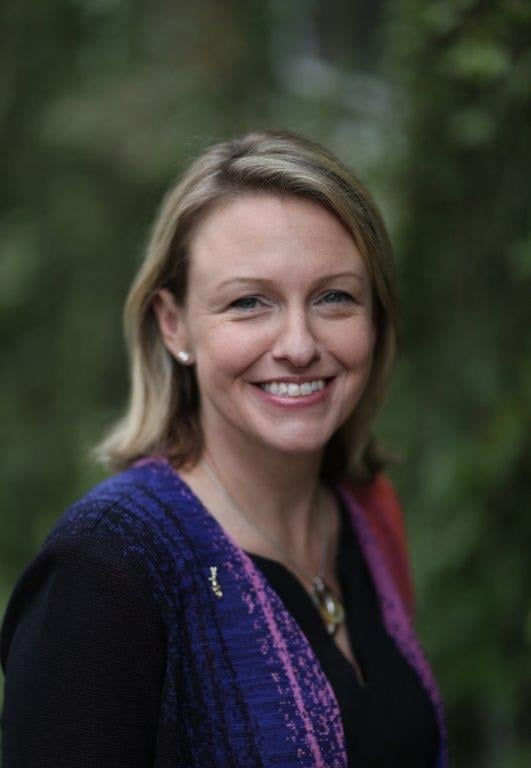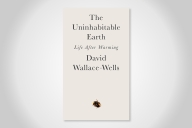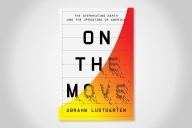You have /5 articles left.
Sign up for a free account or log in.
When Evie Cummings announced on LinkedIn that she had taken a new role at Johns Hopkins University, the congratulatory comments came fast and furious. Evie is well-connected and super-respected in the world of digital and online learning. I first met Evie at the 2023 Digital Learning Summit at Notre Dame, and have been a fan of her work ever since. Evie agreed to answer my questions about her new role.

Q: Tell me about your new job at Hopkins. What will you be doing? What excites you most about the role?
A: First, thanks for having me “on” three questions! I read these all the time! Honored to be here, Josh!
Yes, I started a new role on April 1 at Johns Hopkins University, continuing my apparent new tradition of only working at universities where I have personally attended; haha. As you may recall, I’m a proud graduate of the University of Florida, my last employer, and after I got my bachelor’s at UF in 1993, I next attended graduate school at Johns Hopkins. It’s funny how your career path will reveal itself. Never would have predicted these roles, but I’m absolutely thrilled to be back at Hopkins. (UPenn, take note?)
The Krieger School at Hopkins is at a fascinating convergence of prestige and exploding relevance given its incredible talent across so many disciplines at a time when strategic interdisciplinary approaches are essential to humanity’s handling of historical change events from the rise of artificial intelligence to climate change and adaptation to even the current state of democracy worldwide. What a moment for Johns Hopkins. I’m delighted to have an opportunity to return and see where I may assist as Krieger decides how to position its academic offerings. The challenges we face are many but also, in particular, how might Krieger continue to meet the needs of new and often-shifting careers of adults (see workforce needs), and in particular as the access to college credentials (and the redefinition of college) debate churns.
My role as executive director of AAP strategy and graduate programs will be focused on how Krieger can maximize its impact across all departments, yet each in their own unique ways over the next 2 to 5 years at first but mindful of our next 10-year arc. We’ll be looking at how faculty want to address all of the above challenges (and calls to action!) via summer programs, residential master’s, and online or hybrid programs of all shapes and sizes. But what I’m most excited about is that we’ll do this as one concerted academic strategy as a division at Hopkins. I’ll be assisting departments as they think about their academic offerings going forward and how they want to serve students best.
Personally, after leading UF Online, I’m delighted to see Hopkins merging their online strategy into an overarching academic, multi-modal strategy, with faculty in the lead. I’m thrilled to be a part of it. We’re going to do wonderful things for the current and future Blue Jays!
Q: You are moving to Hopkins from your previous role as Senior Assistant Provost and Director of UF Online. Can you share with us your educational and professional path?
A: Like many of us, my career path is the epitome of “there wasn’t a degree for that back then” and a reminder, a testament to the cornerstone value of a bachelor’s degree from a top College of Arts and Sciences. I find myself uniquely useful, therefore, in conversations where we talk about the appropriate design of degree program offerings since we “don’t know what the jobs of the future even are yet” because there certainly wasn’t a pathway for senior assistant provosts of online programs back in 1993. I would like to think that I’m one of many who can actually point to the value of their degree, its core experiences, and explain how those vital components not only shaped my next move but also have paid dividends over a lifetime to date. When I arrived at college—in the UF Honors program—they required us to go to the computer lab and get a thing called an email account. How bizarre! And the rest is history.
After undergrad at UF, I attended the Johns Hopkins Whiting School of Engineering for my master’s degree, eager to gain greater quantitative and technical knowledge in systems engineering with a focus on environmental science and policy after my undergrad in social science (political science). My hope was to combine my bachelor’s of arts with my master’s of science to be a force to be reckoned with in furthering environmental protection. At the time, I never thought I’d go on to earn a doctorate. That came much later!
But this first leap from a social science bachelor’s to a graduate engineering department was probably one of my first leaps from a familiar field to a completely new one, complete with all the joys of culture shock that it entails. I loved my time at Hopkins, but geez, I was cut no slack and had to quickly learn to think like an engineer, just like my grad school peers who came to graduate study with an undergrad in engineering.
That experience taught me a lot, quite literally, but also left me profoundly grateful for what Hopkins was doing at that time: offering a completely interdisciplinary department with graduate students from across fields to ultimately study engineering from so many interdisciplinary perspectives, from public health to human geography to systems engineering and more. I’m proud that so many excellent friends and colleagues emerged from that department—the Department of Geography and Environmental Engineering at that time—many of whom are top leaders in their fields today. I wouldn’t trade that experience for the world.
Looking back, I also learned how to leap fields and comfort zones while thriving during that challenging transition. To this day, I’m comfortable asking questions, tracking down what I need to know, working with others and being open to completely new ways of looking at things. I thank Hopkins for that. Hopkins faculty taught us the power of bold questions, inquiry and interdisciplinary thinking, especially on the most pressing engineering challenges. A key takeaway for me was the power of tools to solve problems, but their utility emanates from the people who deploy them.
I’m grateful I was prepared with an excellent academic foundation and got to work doing environmental consulting, even working as a receptionist at an awesome Baltimore florist before taking the next leap into federal service.
I joined the U.S. EPA as a GS9 in 1999, worked hard, and earned my GS15 by the time I was 30. What an incredible calling: the honor and calling of public service at the EPA. I joined the EPA as it was grappling with how to leverage and strategically utilize this new thing called the World Wide Web. Under the administrations of Clinton, Bush (2 terms), and Obama (2 terms), I was a proud career official, ultimately leading an entire division at EPA headquarters focused on strategic management of the agency itself, in service to the 2nd in command, the U.S. EPA deputy administrator.
Going back to share the impact of mentors: during the Bush years, I also had the honor to serve as a confidential special assistant to two Senate-confirmed CIOs. They taught me leadership, and I can only hope to grow into a leader like them one day. The incredible executives at the EPA—so many of them (both career public servants and political appointees)—really gave me a front-row seat to their styles of leadership, their thoughtful decision-making, how to negotiate, analyze and solve a problem, address a room, but also how to forge and empower teams, inspire organizations and ultimately get things done; all in an ever-shifting political context. I hope to live up to their standards in any role I assume.
I’ll also add that federal service taught me how to run programs and projects and how to communicate, brief up the chain, and boil down an issue into its essential pieces of information for decision-makers. I wish we had more of that formal and informal training for higher ed.
And in terms of my education, I have had to upskill over a lifetime! My bachelor’s is my cornerstone, my master’s from Hopkins Engineering is where I learned essential quantitative and analytical skills, an executive program at Harvard’s Kennedy School opened my eyes to common management challenges across regulatory and regulated agencies specifically and later, in my 40s, I earned my doctorate in higher education management from the University of Pennsylvania’s Graduate School of Education. The faculty at Penn were also incredible to learn from as I stretched my legs as now a leader in higher education. Fascinating courses from Bob Zemsky to Laura Perna stand out. Plus, at Penn, I was able to complete my doctoral dissertation research on the journeys of single mothers at AAU colleges. Best of all, the networks I’ve forged in each program and workplace along the way are priceless in friendship but also in access to such divergent perspectives and lived experiences.
I’m a product of all those excellent schools, and of my lived and professional experiences, as are all of our colleagues and students. We should all remind ourselves that access to learning experiences is a gift. How can we give others access to these gifts?
I’ve also cherished opportunities where I could step into a new role, a new challenge. That’s how you grow. Your education is also the learning that takes place on the job, over 5 years, 10 years, 20 years and the many phases of your career. Your professional life is its own journey, one to enjoy as its own path of lifelong learning.
Sorry for the long answer ! But as my eldest starts college this fall and my youngest at a new high school, it is my hope that my two boys can have such a fun, dynamic learning journey.
Q: Your path from over 16 years in the federal government to a leadership role at the University of Florida is not typical of most higher ed careers. What advice do you have for anyone thinking about making the switch (as you did) from an industry outside of higher education to a university?
A: I think more people should do it—traverse sectors and take the leap. Join and lead the teams who accomplish incredible things. There is something daunting about it, and let me be clear, the first year in a new sector is a test of your will (people say the darndest things, to your face, haha), but you will find that your new job has many things in common with your last one.
Of course, the challenges are unique, situational, specific and inextricably tied to culture. Budget mechanics differ slightly, and you must learn your political, policy and regulatory context. You get to be a student again. You must quickly learn how an organization gets work done, and how it doesn’t, what stands in the way. The people are the best, most valuable and unique aspect of any role but especially interesting to me are the systems, constructs and customs that people have built at an organization over time to either allow or disallow work, joy and information sharing.
So, for me, the challenge of sector-leaping leadership roles comes down to listening, learning, and then to nimble, adaptive strategy, plus swift but thoughtful decision-making. All are built on a key foundation: the ability to know what’s working and what isn’t, and the empowerment of teams, aka ensuring the organization has vibrant, empowered communities of practice. And for me, I always work to build a candid network who can tell the truth, the honest truth of the front-line experience, and the truth about how something has landed (outcomes versus goals); real talk. Don’t be afraid of data in all its forms.
And yes, my career started in federal service at the U.S. Environmental Protection Agency, and I’m so proud to have spent 16 wonderful years working for the American public, doing my part to see the EPA thrive in protecting human health and the environment. My career at the EPA was on similar questions: how does a large public institution ensure relevance and impact in a modern era as the public shifts how it uses and accesses data and information? What is the public’s right to know and, in turn, [what is] the federal public access responsibility of the EPA and other human health and environmental agencies? Shouldn’t every American know what pollutants are in their community, in their drinking water? And given the stakes of the mission, shouldn’t the EPA’s own strategic management and usage of data be unparalleled in its effectiveness and efficiency?
My final eight years were spent focusing acutely inward at EPA on its own, national strategic management. You can never hope to achieve your vision if you have no plan to succeed and no way to determine if you’re making any progress. It was true then in the U.S. EPA, and it is true now across U.S. higher education institutions: These institutions need strategic leadership AND management from within to realize their mission. I see the stark reality and power in that and I’m always eager to join top teams to achieve great things.
But higher education is a special place. In a way, it seems mired in its own uniqueness. Worried that if it works to instill efficiencies and structures, even core services, it might lose what makes it great, and it might become more like other sectors and, heaven forbid, like the private, for-profit sector! But I worry that higher ed puts too much between itself and a more perfect state for faculty and students alike.
In a way, we are afraid of defining the work, because I think we’re worried it would become sterile and soulless, but what ends up happening is we can’t make space for the work if we can’t articulate what it is. And we burn out our talent. This burnout is the great commonality across everyone working at a university, whether you’re faculty or staff.
This will sound weird, but solving these challenges is the joy of working in higher ed. Understanding that middle space is really complicated. The space between where we are and where we need to be. I’m always eager to work with others to figure it out. Namely, what’s uniquely us, inherently of great value to us, this country, the global community, our students, our legacy, and how can we make that even more incredible and maybe have some fun with new models.
And at the same time, where can we stop doing something that gets in the way of our own mission, makes faculty miserable, students too? What practices and traditions actually waste time, cause rework, waste talent and even manifest as unnecessary gatekeeping around our institutions? What can we drop that’s keeping people out and away from the gift of an educational experience? But again, what’s by design and essential to ensure an excellent, relevant experience? Each campus and division gets to answer that for themselves.
I think that’s one of the benefits of my path across sectors. I absolutely love the work, and I think I bring an experienced yet fresh set of eyes to the work—the essential work being done by real people—at our higher education institutions. The stakes are too high to get it wrong!
I’m grateful that I join colleagues at Hopkins who are already working on this and so much more. I can’t wait to learn more about them and their work as we shape Krieger’s academic portfolio and support for faculty and students. I’m also heartened to know so many excellent colleagues nationally who are also ensuring top universities remain strong, relevant, and as such, welcoming and transformative, never resting on our laurels or hiding in some sheltered cave of elitism.
My career path has always been a string of brave lurches into often new roles where I can join an amazing organization with a bold mission and help it to see its best future. Never boring, always a challenge but always for an essential cause: the health and vitality of institutions that drive America forward, and in doing so ensure equal opportunity for all to enjoy the American dream. This imperative for access to information, expertise, education and opportunity drives my career choices.








